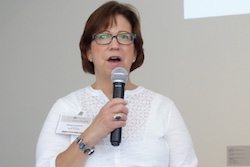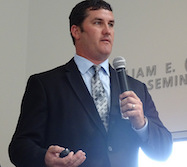 Farmers and ranchers may be receiving a national survey from the USDA’s National Agricultural Statistics Service (NASS) to assist in measuring the environmental benefits associated with conservation. Researchers hope the results will allow them to further develop science-based solutions for improving the agricultural landscape and the environment.
Farmers and ranchers may be receiving a national survey from the USDA’s National Agricultural Statistics Service (NASS) to assist in measuring the environmental benefits associated with conservation. Researchers hope the results will allow them to further develop science-based solutions for improving the agricultural landscape and the environment.
“The survey gives farmers and ranchers the power to provide a more complete and accurate picture of the conservation practices on their operations,” said NASS Administrator Hubert Hamer. “If contacted, I encourage farmers and ranchers to participate. Their collective responses can directly benefit themselves and all producers by helping leaders focus on what producers need to install conservation practices that are best for their operations environmentally and financially.”
The results of the survey will demonstrate the work of America’s farmers to conserve natural resources while producing the food, fuel and fiber the world requires, participating farmers and ranchers support our cause for continued science-based conservation programs that protect natural resources while supporting farm-related jobs. Survey results will guide USDA conservation policy and program development and help conservationists, farmers and ranchers more efficiently and effectively conserve natural resources.
In addition to helping determine the effectiveness of existing conservation practices, NRI-CEAP analysis provides estimates of resources farmers may need to further protect the soil, water and related resources. Additional information about CEAP is available at the Conservation Effects Assessment Project survey web page.
The survey is being conducted in cooperation with NRCS to gain a better understand, not just of effective practices, but of resources famers and landowners may need access to in order to best protect soil, water and other natural resources.
The survey is set to take place in two parts; the first being to establish eligibility for a second, more in-depth survey.











